Rivalries are nothing new in the automotive world, and it was one such situation that motivated De Tomaso to attach the Mangusta badge to the car that replaced its Vallelunga. Only 401 of these vehicles rolled off the line before being replaced by the iconic Pantera, and this 1970 example is a gem. It presents superbly following a total restoration and is a classic with a known history. I must say a big thank you to Barn Finder Driven By Faith Restorations for spotting an Italian thoroughbred that needs nothing but a new home.
Giorgetto Giugiaro penned the design for the Mangusta, which went into production in 1967. The styling is elegant and aggressive but is also quirky. Pop-up headlamps were an industry favorite at the time, and gullwing doors were nothing new. However, a gullwing hood helped the Mangusta to stand apart from other Italian exotics. The Mangusta name was derived from the Italian for “mongoose,” and was a direct result of a dispute between Alejandro de Tomaso and Carroll Shelby. A planned collaboration on a new Can Am race car floundered when De Tomaso failed to deliver on his side of the deal. Shelby pulled the pin, and De Tomaso was so incensed that he dubbed his latest model the Mangusta, as a mongoose was an animal capable of killing Cobras. It is worth noting that both men were quite hard-headed and that Alejandro de Tomaso developed a reputation for not working well with others. This car’s first owner was a Pan Am pilot who remained its custodian for fourteen years. It passed through the hands of two subsequent owners who used it sparingly before finding its way to a collector who commissioned a total restoration. The car was completely stripped and the panels were massaged to an arrow-straight state before being repainted in its beautiful original factory Red. Every piece of trim was refreshed, as were the Campagnolo alloy wheels. The glass is crystal clear, and the subsequent owners have done their best to protect this classic from wear and tear. I am unsure whether it is fair to describe the Mangusta as perfect, but the new owner won’t need to spend a dime on its exterior presentation.
This Mangusta features an aftermarket Ferrero wood and leather wheel and an upgraded radio/cassette player. Otherwise, the interior is as it left the factory. The Black leather upholstered surfaces perfectly complement the exterior paint shade, and the overall condition suggests it has seen limited use since the restoration ended. The outer seat bolsters are prone to wear, but there are no such problems with this classic. Everything is spotlessly clean, with no evidence of abuse. This De Tomaso scores points with me courtesy of the gated shifter, which I have always felt is an essential feature of any Italian exotic. Cabin ventilation is one of the Mangusta’s most noted shortcomings, so the buyer will undoubtedly welcome the air conditioning and power windows.
Part of the secret to the Mangusta’s impressive performance was its curb weight of 2,612 lbs. It meant that the car’s mid-mounted 302ci Ford V8 didn’t have a lot of mass to shift. It sent 230hp and 310 ft/lbs of torque to the road via a five-speed ZF manual transaxle. Enormous four-wheel disc brakes and independent suspension improved the car’s handling and stopping power, making it worthy of wearing the tag of an exotic sports car. However, it is worth noting that the Mangusta received plenty of criticism when it was new for being highly strung and difficult to drive. Those cars that survive have typically been refined, making them far more user-friendly. This De Tomaso would have covered the ¼-mile in 14.7 seconds on its way to 155mph when it left the factory, but the restoration included a specialist rebuild for its V8 that pushed power to a reputed 305hp. Therefore, this gem could be considerably faster. It is in excellent mechanical health and, unsurprisingly, it is a turnkey proposition for its new owner.
This 1970 De Tomaso Mangusta is a stunning car that would undoubtedly draw crowds. The company produced 401 of these classics, but it is believed that only around 250 remain in captivity. The seller listed this one here on eBay in Saint Ann, Missouri. Unsurprisingly, potential buyers must pay dearly to park it in their garage. The price of $329,900 is eye-watering, although the seller provides the option to make an offer. The viewing and watch history for the listing suggests that most people feel it is beyond their means, but it would only take one person for the Mangusta to find a new home. Do you think that will happen at the BIN price, or will the seller need to lower their expectations?
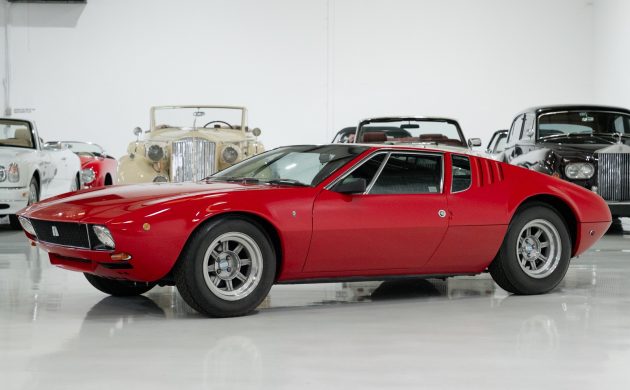
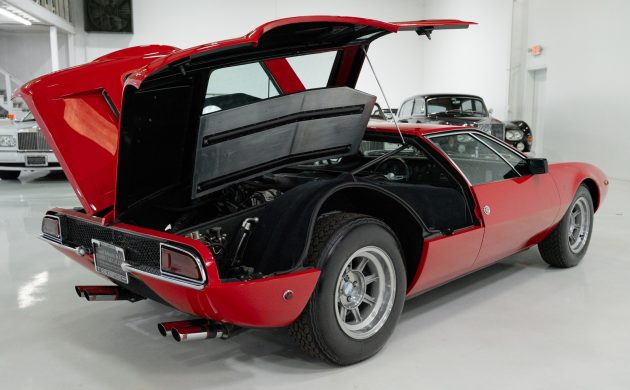
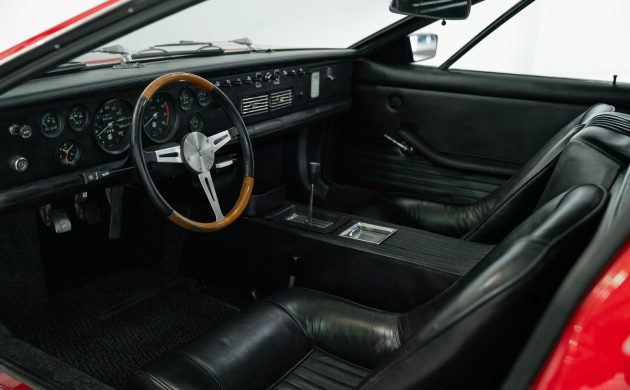
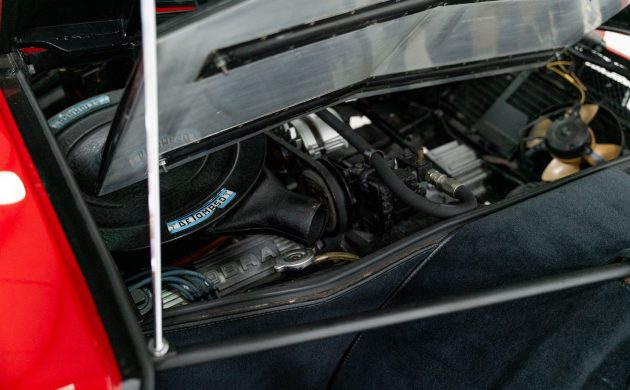
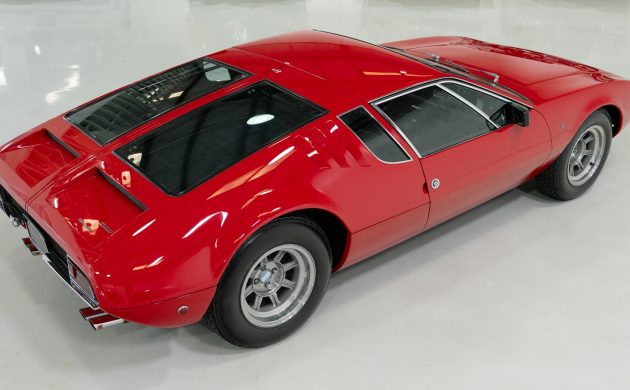





Beautiful car. Stupid nit-pick from one who could never afford it but that steering wheel has to go. Something racy with lots of holes in the spokes like a Momo or, if wood is preferred, a narrow Nardi. The current looks like something from J. C. Whitney.
Sticks and stones…
That actually IS the original steering wheel. The author of this article is incorrect.
Just stunning…I do agree on the steering wheel. Just seems out of place. Hahaha, I think I could live with it though.
This is the car most kids drew while not paying attention in class…
Did you see my notebook in school?
Rare and interesting car. I did not know so few were built.
The background scenery is quite interesting too.
Amazing how ambitious de Tomaso was in the early 60s. Mid-engined road cars kind of start with him….the Vallelunga is also a thing of beauty.
I don’t know which exotic gave me chills as a 14y.o.: Mangusta, Miuria SV, Cobra 427sc, or a Lambo 400 GT…
There used to be a magazine called Sports Car Graphic with glorious beneath-the-skin drawings of cars that I’d eyeballed for hours.
To this day I prefer the old iron to today’s electronic-controlled marvels regardless of speed, handling, and h.p.
Had all of those and more at one time in my life. Wish I wouldn’t have given my collection to the neighbor kid!😁
IMHO, one of the most beautiful automobile designs EVER!
Completely agree. I’d put one up on a turntable, just to look at it every morning over coffee. I seem to recall that the weight distribution was as bad as a 911, in these; I think I’ve read that a lot of Mangustas turned into high-speed pendulums on the racetrack.
Engine is in front of rear axle =mid-engine.
911 has it hanging out back behind the axle = rear engine.
Big difference in weight distribution .
The internet says :
Mangusta – 44F/56R
1970 911 – 42F/58R
The Mangusta is better, but hardly the 50/50(ish) most mid-engined cars achieve, nowadays. I wonder if an aluminum engine would make a significant difference?
Pretty shiny barn.
I’ll play the lottery this week, since that’s the only way I’d ever be able to buy it.
Not just a dirt-common Pantera, but five times the price? It is ready to drive, though, which is worth a lot. Call the guy in six months and make a realistic offer.
Isn’t it Ironic that the Mangusta was built because of the cobra and it wears the cobra valve covers?
Back in the day Sports Car Graphic drove one and found the car had serious snap oversteer. After some testing they determined that the rear roll center was too high and the car was jacking up (just like a VW or Corvair) just before it snap spun and bit them. After relocating the rear pivot points the car was tamed but that’s what it took to fix the evil handling. They weren’t well liked at the time because they were evil handling. They are rare because they were replaced by a better car. Just because they are rare doesn’t make them more desirable. If you’re willing to rework the rear suspension then you can make a decent car out of one, but the Pantera was an all around better car.
I think some of it was the twisting of that backbone chassis.
as a kid, I had a diecast toy of this, the body came off of the chassis
Similar(or same?!) taillites as ’70-73 firebird.
Odd no bumpers to speak of.
I’ve always loved their looks from the time I had a Hot Wheels one in the late ’60s.
There was one built without an engine.
It’s owner was a GM stylist, so a Ford engine was a no no. It’s covered somewhere in Deans Garage.
This listing ended on Sat, Sep 7 at 11:15 AM.